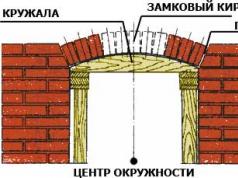At the 19th World Festival of Youth and Students, students from different countries shared their vision of the development of the world on the horizon until 2030 with the President of Russia. This meeting was preceded by a series of foresights conducted by Konstantin Vishnevsky, Head of the Department of Digital Economy Research at ISSEK, Ozdchan Saritas, Professor of ISSEK and Editor-in-Chief of the British Foresight magazine, and Yuri Simachev, Director of Economic Policy at the Higher School of Economics.
The results of the week-long work in which HSE students also took part, in particular students of the ISSEK master's program Management in Science, Technology and Innovation, were presented by HSE ICEF student Alexander Li at the Youth 2030. Image of the Future session attended by the President of Russia ...
Presentation by Alexander Lee from 14.40 minutes.
During the session, representatives of different countries made presentations on a number of development areas: technologies of the future, ecology, aviation of the future, new media, economics for future development, health, civil development platform, designing the future, global politics, future science and education, industries of the future, world railway network, creation of the "team of the future".
ICEF HSE student Alexander Li presented the main results of the session participants in the presentation “Economy for Future Development”.
“One of the main directions that we discussed is that people will be the center of the economy, not in the traditional way, as a factor of production, but as a leading force in order to make the economy more personalized,” said Alexander. - 42% of students in the panel discussion voted that the most important economic area of the future is human modification, so we will see a change in our skills and capabilities through bioengineering and, possibly, the introduction of a new education system. Also, digital transformations and the rapid growth of the transport system will make the world even smaller, and then we will move to a new structure of the economy and see a more mobile workforce, people will work in a wider range of areas throughout their lives. Moreover, there will be a more efficient outsourcing model of the economy, where distance will no longer be an obstacle. Summarizing all of the above, we are moving towards a decentralized, personalized economy, where the person will be its center. "
Vladimir Putin wished the participants of the festival to realize their “wonderful and grandiose plans” and shared with them his thoughts on what to bear in mind. The head of state noted that, firstly, it is necessary to remember that these plans are of an applied nature (if we are not talking about fundamental science). Secondly, the introduction of new technologies is impossible without educated people, and we are talking not only about "a set of interesting and important knowledge", but also about creative thinking, the ability to communicate with other people and work in a team. Finally, “no matter what we do, we must never forget about the moral, ethical foundations of our business. Everything we do should benefit people, strengthen a person, and not destroy him, ”the president stressed.
Last year, the HSE Institute for Statistical Studies and Economics of Knowledge initiated the National Youth Foresight project to study the scientific and innovative potential of Russian youth and involve them in the process of shaping the country's future.
Sergei Sobyanin: An amazing thing is being discussed: what kind of graduates we will have in 2030, and this is practically fantastic. In fact, this is not any fantasy, it is already a reality that is on the threshold. Our children, who go to kindergartens and receive the basics of education, will go to first grade next year - they will graduate in 2030. Moreover, children who have just been born and those who do not yet go to kindergarten are our youth of the 2030s. That is, we are not talking about future generations, but about the present generation, which from next year will begin to go to school and receive knowledge. And therefore, what is being discussed today is not an abstraction, not a fantasy, but absolutely concrete things and a specific education system, the tasks that education faces today.
Moreover, it should be borne in mind that the technological renewal of schools even in Moscow occurs once every five years (and this is our achievement), and in most schools, I think, this happens less often - once every seven to eight, or even 10 years. ... This means that in 2030 children will receive education on the technological platform that is being introduced today.
Moreover, even our requirements for graduates, the same Unified State Exam, it is difficult to assume that they will radically change by 2030, if we do not begin to lay some changes today. Even if we discuss with the pedagogical community, with experts some serious changes in this system, the result, a formalized result, we will get in five years, and children in five years will have to prepare for exams that will be held in 2030. That is, what we are discussing and creating today, even from the point of view of changes in control over the education system, today's changes will just come by 2030. Therefore, today's agenda is not fantastic; on the contrary, it is today's agenda.
Moscow, as the largest megalopolis in Europe, one of the largest megalopolises in the world, is a city based on a new technological order, it is a city of knowledge, in which a huge number of scientific, educational institutions, organizations and enterprises that create new technologies are concentrated. And for Moscow, what we are discussing today, the entire education system, from kindergarten to vocational education, is one of the main priorities. This is a guarantee of the competitiveness of Muscovites, the city, and the country as a whole. Therefore, we pay so much attention to the development of the segment for which we are responsible, on the one hand; on the other hand, we are working with colleagues to create a vertical of education from a kindergarten to a university to the requirements of employers - a vertical of a permanent education system.
Moscow has serious results in the field of education: according to international assessments carried out by PIRLS, PISA, Moscow education was in the top five educational systems. And this did not happen by itself: Moscow education has undergone major changes - both structurally and in terms of funding and motivation. But this does not mean that nothing should happen next to us. On the contrary, we are confident, convinced that we must move on.
Such an achievement as equal financing of all educational systems should logically end in the fact that in any Moscow school it will be possible to get a very good, high-quality education. Today, changes are already evident: more and more Moscow schoolchildren are among the winners of both Russian and international Olympiads, the USE results are getting better and better, which on average have almost doubled in recent years, like all other quality indicators. Nevertheless, this system also needs to be supported and developed, to support the best, advanced practices, schools that show unique results. And this is also a system - a system of motivation and support for the future of Moscow and Russian education.
Undoubtedly, in addition to public schools and the state system, it is necessary to support both those endeavors and those investments in education that are created by private companies and individuals. It is very important that not only the state, but also business and the public participate in the search for the forms of future education.
We discuss a lot about what knowledge should be laid, what educational methods should be applied in today's school, tomorrow and the day after tomorrow. There is a heated discussion of these problems, and we are also included in the discussion.
But in my opinion, it is even more important to create a system in schools that would itself generate ideas, support and develop them. Of course, there are great scientists, experts, who can offer excellent methodologies and educational content samples. But when this includes the entire pedagogical community, all teachers in both cities and countries, it creates such a stream of new content, innovations in education, best practices that is incomparable and incomparable, of course, with any expert community, with all due respect to it. ...
Moreover, you can choose the most successful elements from different scenarios and create your own lesson scenario. And this is a huge, I'm not afraid of this word, democratic movement of the entire pedagogical community to create the best educational content, best methods and best scenarios, it seems to me that in many ways this is the basis of the future we are talking about. Moreover, all this production, this entire system, all this educational content is assessed not by the head of the Department of Education, not by the Minister of Education, but by the teachers themselves. The entire system is motivated to create content that will be most popular with educators. They are the most important evaluators, they are parents and students.
It is very important, of course, that we do not focus on the school. We understand that the school is one of the segments of the educational system, which includes preschool institutions, schools, colleges, universities and further enterprises or institutions, clinics, hospitals and so on, where our graduates go. And it is very important to create the integration of everything that is in the city, settlement, country, in order to fully utilize the education system, so that universities and colleges come to our schools, and schoolchildren have the opportunity to use the entire material base created in colleges and understand what a university is, what opportunities, skills it gives, so that at school children receive knowledge about their future life and profession, which will allow them to consciously choose it.
For this purpose, engineering, scientific, medical and other classes are being created in Moscow, where schoolchildren, in fact, receive pre-professional education, contact the entire infrastructure, the entire city, from educational institutions to cultural institutions, museums, leading enterprises, technoparks, scientific institutions. And dozens of such classes have already been created. And in the future, each school should be the center for the integration of all the possibilities that exist in the metropolis. And this will create in the student an idea about the next stage of life, about the transition to adulthood, about preparation for adulthood, about the application of the knowledge that he receives at school in his future life. And it seems to me that if we develop these two interesting powerful systems so that they work effectively in every educational institution, then we will make a good foundation for the future of the city and, most importantly, for the future of our children, who will receive the most modern knowledge. adapted to the conditions of a modern city and modern life. Thanks.
14.11.2017
A GLOBAL YOUTH POLICY PROJECT HAS BEEN STARTED
"YOUTH 2030: Russia's future through the eyes of youth"
The Youth Branch of the Russian Society of Political Scientists invites young people and experts to contribute to the future of their country by taking part in the formation of the Declaration of Russian Youth.
Project coverage:
- 85 constituent entities of the Russian Federation
- Thousands of active young people
- 5 thematic areas
- Dozens of round tables, debates, plenary sessions
- Hundreds of resolutions
- 5 stages
- More than 40 largest youth organizations
- Hundreds of speakers across the country
The result will be the adoption of the Declaration of Russian Youth.
During the entire duration of the project, from November 1, 2017 to February 16, 2018, Russian youth will have a unique opportunity to contribute not only to the development of the modern youth policy of the Russian Federation, but also to shape the image of the future of Russia - what kind of youth wants to see our country in 2030 year. During the project, young people will learn about the possibilities of participating in the socio-economic, socio-political and socio-cultural life of Russian society. The project will take place in three stages.
1. Regional stage
Conducting a series of events in the format of round tables, seminars and debates, as a result of which regional resolutions will be adopted, including current problems and proposals of young people on youth policy.
2. Conference "Youth 2030: Russia's Future through the Eyes of the Young Generation"
Conference to be held in Moscow for 5 days. Discussions in 5 sections will be offered on the following topics:
- Youth in the political processes of modern Russia;
- Youth entrepreneurship as a factor in the development of the Russian economy;
- The role and importance of youth in the structure of civil society;
- The role of youth diplomacy in the implementation of Russia's national interests;
- Spiritual and moral education and cultural values of modern Russian youth.
The result of the conference will be the adoption of the Final Resolution, which accumulates requests, and also form a list of proposals and topical issues of modern Russian youth.
3. Final conference and preparation of the Declaration
Within the framework of the Final Conference, participants will have the opportunity to discuss the resolutions adopted during the regional stage, as well as develop their own proposals for inclusion in the Final Resolution. The resolution will form the basis of the final document - the Declaration of Russian Youth, which is a document with a list of wishes, proposals and solutions to the most important problems in various areas of state policy on behalf of Russian youth in the framework of the Russia-2030 Strategy.
The final resolution will be submitted for discussion at the All-Russian Assembly of Young Politicians and Political Scientists in the winter of 2018, following which it will be adopted
4. All-Russian Assembly of Young Politicians
An event that will bring together the youth scientific community, practicing young politicians, opinion leaders, young entrepreneurs, creative youth from all over the country. During the discussions and discussions, the Declaration of the Russian Youth will be adopted, which will become the main result of the project and will be a comprehensive document containing a list of wishes, specific proposals and solutions to important problems in various areas of state policy of the Russian Federation, which will be sent to the state authorities of the Russian Federation ...
Othe organizer of the project "Youth 2030: The Future of Russia through the Eyes of the Young Generation" is the Russian Society of Political Scientists, a non-governmental organization uniting the Russian expert community in the field of political science; the society includes leading political scientists and statesmen of Russia.
PARTICIPATION IN THE PROJECT GIVES THE OPPORTUNITY:
Chat with famous speakers
Offer your perspective on solving problems in youth policy
Make new interesting and useful acquaintances
Take part in the formation of state youth policy








